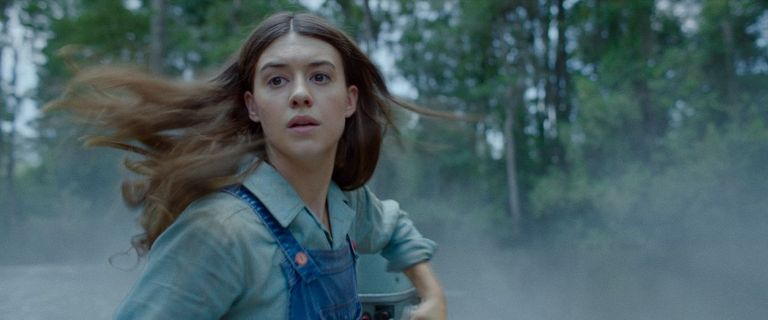The consequence of its thick reason is a film that is shockingly dormant. Chief Olivia Newman, working from a content by Lucy Alibar, hops this way and that absent a lot of energy between a young lady's homicide preliminary and the memories of her crude youth in 1950s and '60s North Carolina. (Alibar likewise expressed "Monsters of the Southern Wild," which "Where the Crawdads Sing" looks like to some degree as an account of a creative young lady's endurance inside a disgusting, damp setting.)
It is so stacked with plot that it winds up feeling shallow, delivering significant disclosures as hurried bits of hindsight. For a film about a bold lady who's experienced childhood in the wild, residing by her own guidelines, "Where the Crawdads Sing" is bizarrely lukewarm and limited. What's more, beside Daisy Edgar-Jones' multifaceted presentation as its focal figure, the characters never develop past an essential characteristic or two.
We start in October 1969 in the bogs of fictitious Barkley Bay, North Carolina, where two or three young men coincidentally find a dead body lying in the sludge. It ends up being Pursue Andrews, a famous hotshot in this isolated little lake. Also, Edgar-Jones' Kya, with whom he'd once had an improbable heartfelt snare, turns into the superb suspect. She's an obvious objective, having for quite some time been alienated and denounced as The Swamp Young lady — or when townsfolk are feeling especially insulting toward her, That Bog Young lady. Flashbacks uncover the maltreatment she and her family endured because of her unpredictable, alcoholic dad (Garret Dillahunt, nerve racking in only a couple of scenes), and the resulting deserting she persevered as everybody left her, individually, to fight for herself — beginning with her mom. These striking, early segments are the most sincerely strong, with Jojo Regina giving a great, requesting execution in her most memorable significant film job as eight-year-old Kya.
As she develops into her adolescents and mid 20s and Edgar-Jones assumes control north of, two totally different young fellows shape her early stages. There's the unrealistic Tate (Taylor John Smith), a lifelong companion who trains her to peruse and compose and turns into her most memorable love. ("There was something about that kid that facilitated the rigidity in my chest," Kya describes, one of numerous awkward instances of moving Owens' words from page to screen.) And later, there's the self-important and harassing Pursue (Harris Dickinson), who's clearly terrible information all along, something the withdrawn Kya can't perceive.
Be that as it may, what she needs profound development, she compensates for in interest in the regular world around her, and she turns into a skilled craftsman and self-teacher. Edgar-Jones encapsulates Kya's crude motivations while likewise unobtrusively enlisting her worry and question. Essentially everybody lets her down and misjudges her, with the exception of the generously Dark couple who run the nearby corner shop and act as improvised guardians (Real Macer Jr. furthermore, Michael Hyatt, bringing truly necessary warmth, despite the fact that there's not a lot to their characters). David Strathairn gets the least to work with in one of the film's most vital jobs as Kya's lawyer: a thoughtful, Atticus Finch type who emerges from retirement to address her.
This ends up being particularly clear in the film's court scenes, which are generally spur of the moment and proposition unquestionably the blandest adages and anticipated sensational beats. Like clockwork "Where the Crawdads Sing" scales back to Kya's homicide preliminary — which happens apparently all of a sudden, with not a great explanation — the pacing hauls and you'll wish you were back in the sun-dappled swamps, researching its numerous animals. (Polly Morgan gives the satisfying cinematography.)
What really winds up occurring here, however, is a particularly horrendous curve — and everything works out in such bewilderingly fast style — that it's unexpectedly ludicrous. You get the impression that everybody in question wanted to pack everything in, yet still keep a reasonable running time. In the event that you've perused the book, you realize what ended up pursuing Andrews; on the off chance that you haven't, I wouldn't fantasy about ruining it here. Be that as it may, I will say I had various undeniably additional charming ends twirling around in my mind in the vehicle ride home, and you presumably will, as well.
